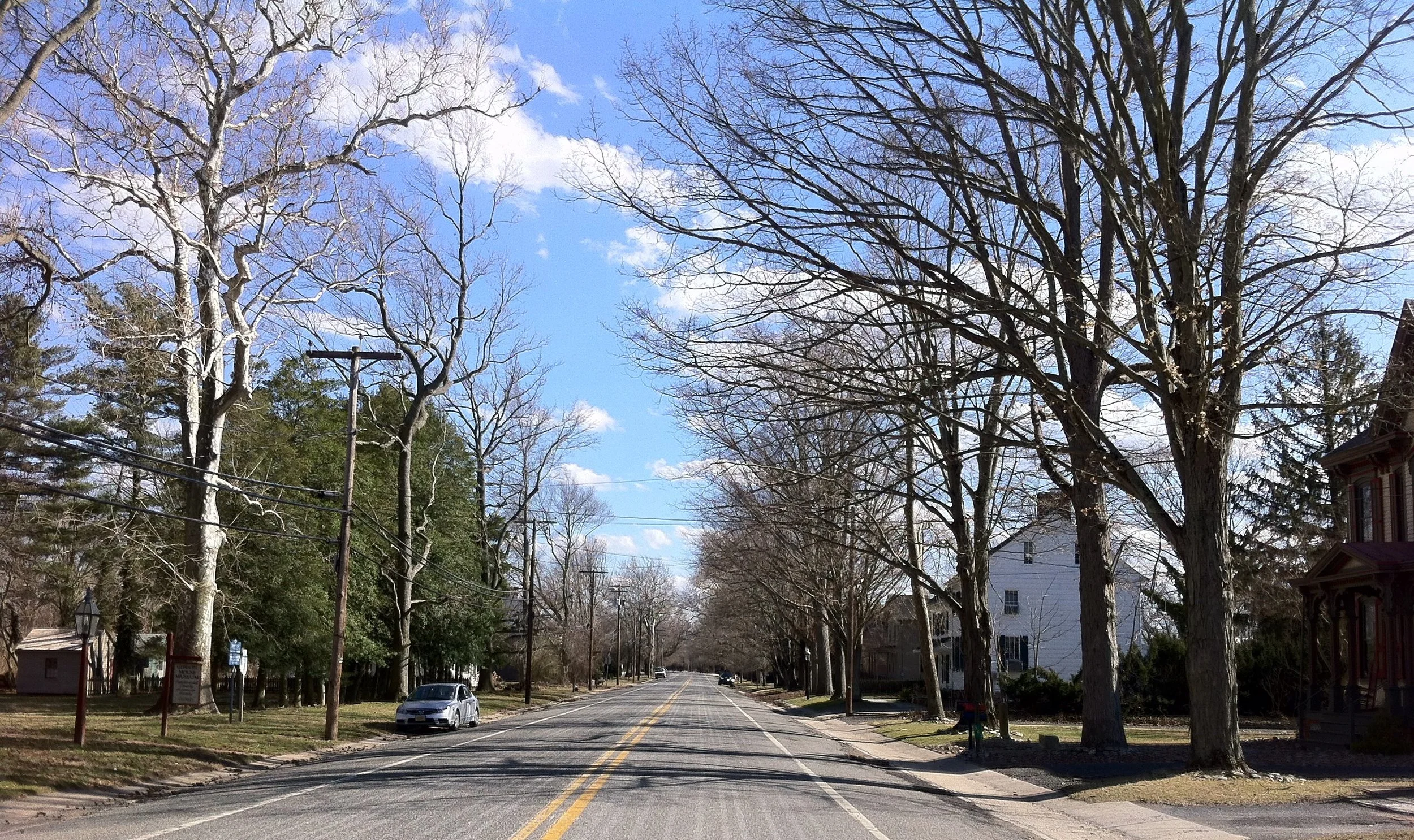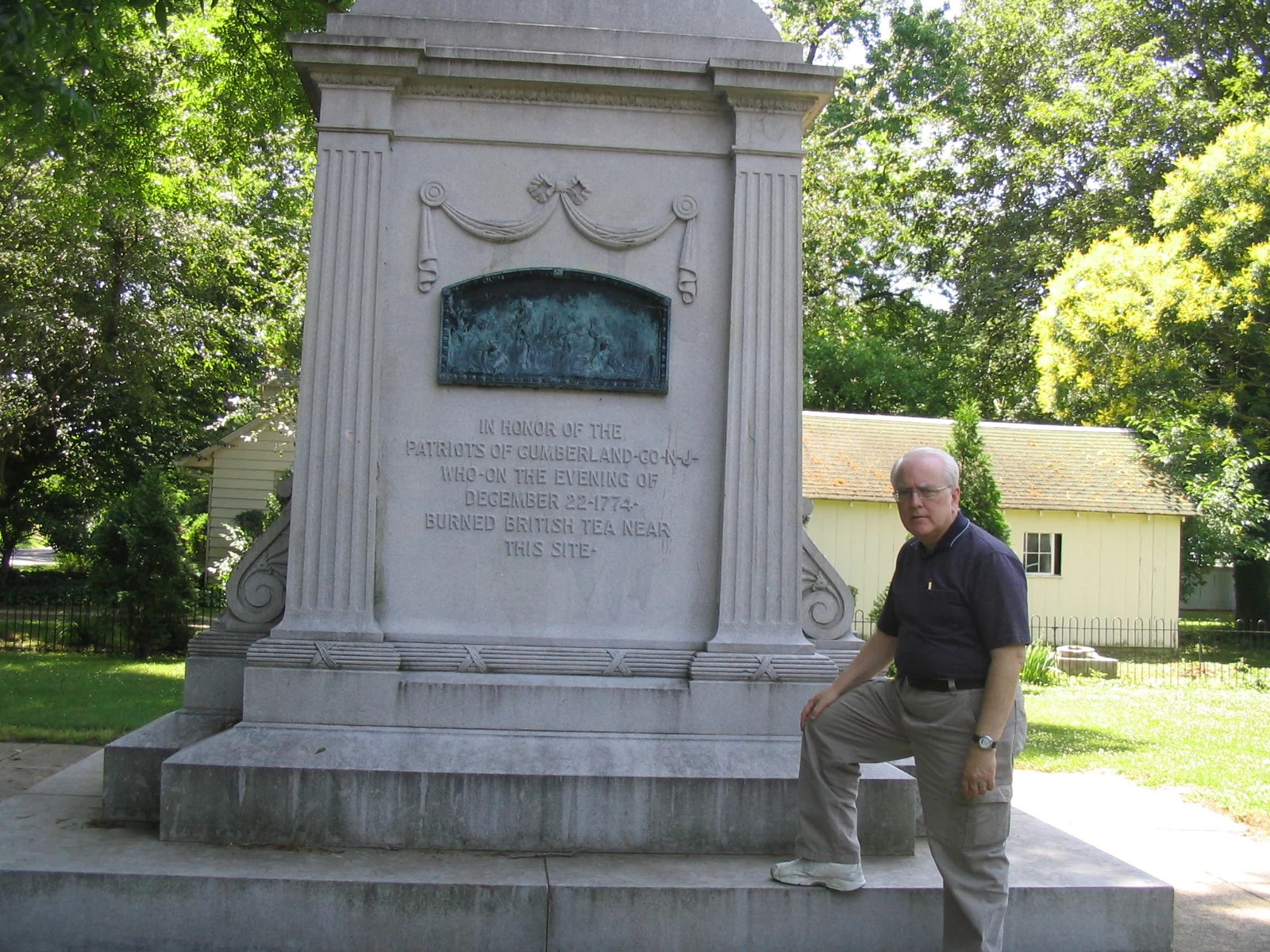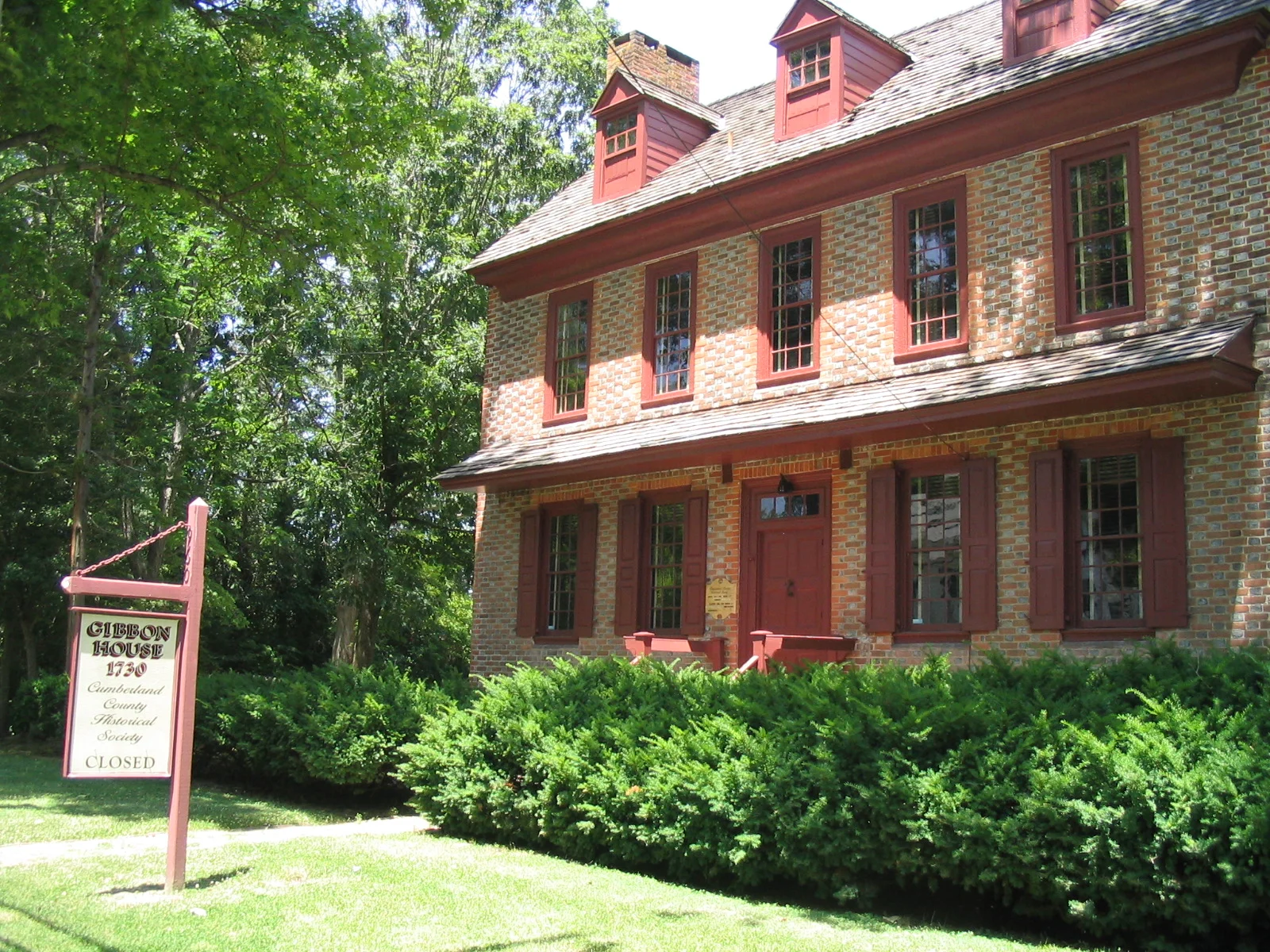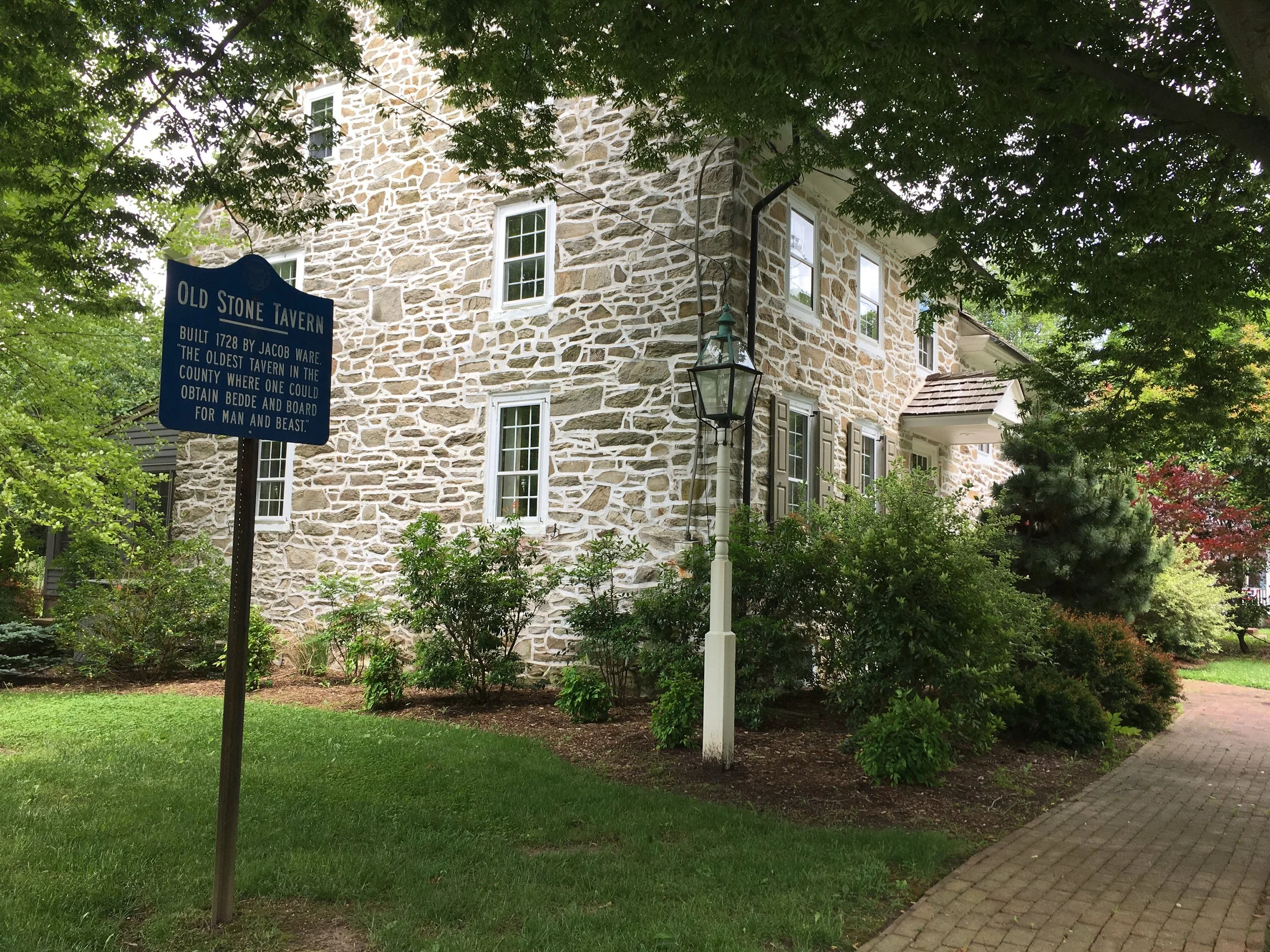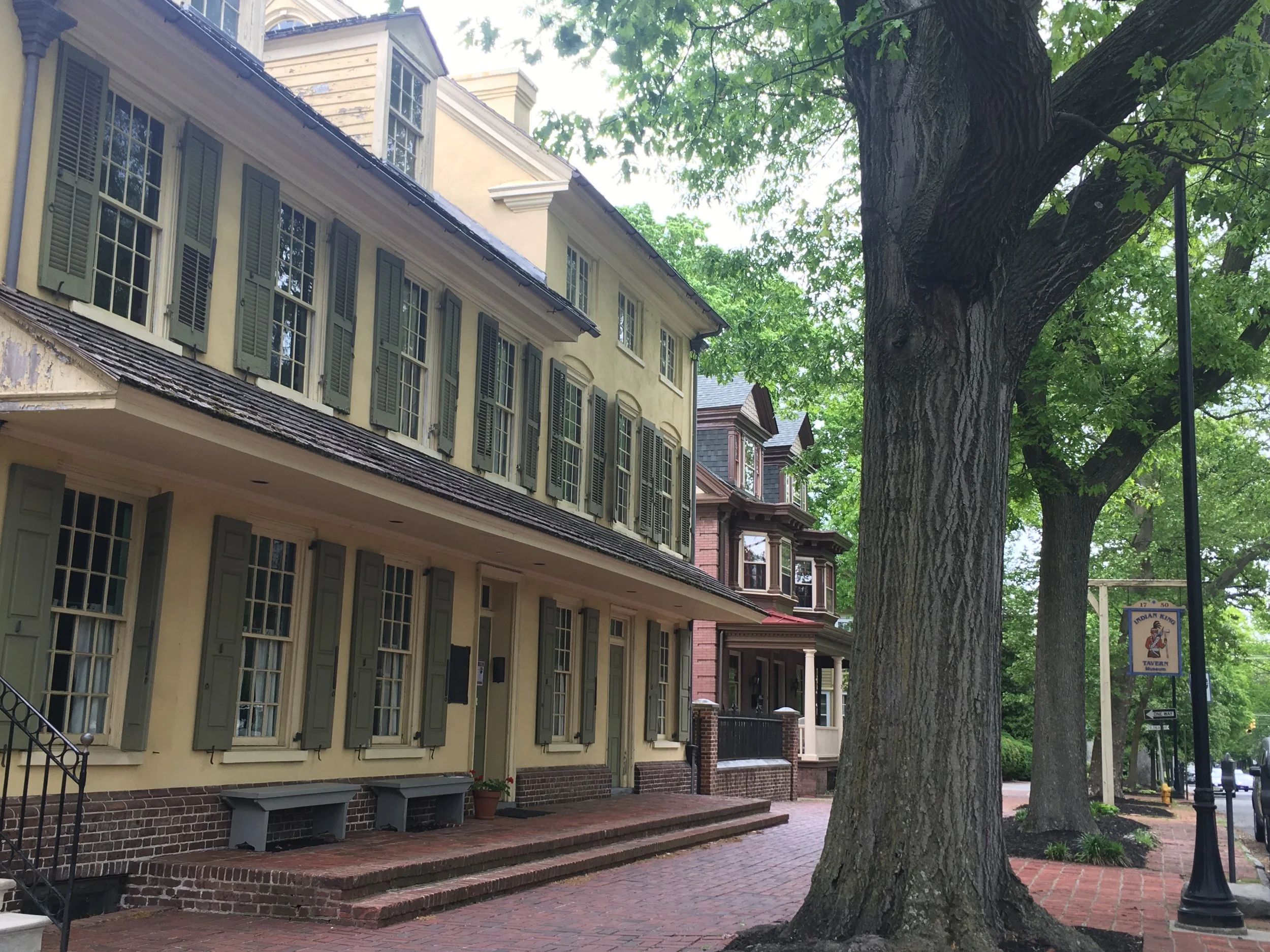The Genesis of Greenwich: The Final Project
Monument honoring the Tea Burners of Cumberland County, NJ.
Greenwich offered Steve the perfect opportunity to combine his love of history and writing with his career experience in the biotech consulting field. His desire to bridge the gap between his two brain hemispheres climaxed in the summer of 2007 when he launched this writing project at the urging of his wife, Janet, following their off-the-beaten-path day trip to the charming, historic town of Greenwich, Cumberland County, NJ, located on the banks of the Cohansey River. It quickly became a labor of love!
The Gibbon House
Built in 1730 by Nicholas Gibbon, maritime merchant whose ships carried most of the colonial trade of this port. Now a museum operated by the Cumberland County Historical Society.
The stone tavern
The Old Stone Tavern, built in 1728 by Jacob Ware, also doubled as a court house for Salem County, with travelling sessions alternating between Salem and the Stone Tavern in Greenwich.
Founded in 1684, the town of Greenwich was the third of three Quaker settlements established in the province of West New Jersey, the others being New Salem in 1675 ( (today’s Salem of Salem County, NJ) and Burlington in 1677. These represented the first permanent English settlements in West New Jersey, and the first Quaker settlements in America! By the time of the American Revolution, Greenwich had grown into a prosperous farming and mercantile maritime community, being one of only three legal ports of entry inWest New Jersey.
Haddonfield, NJ
The town of Haddonfield, NJ, located on the Cooper River in Camden County, is the second of two towns prominently featured in the novel, Greenwich. Like Greenwich, it boasts a proud colonial Quaker heritage. (I was thinking of naming the novel, “A Tale of Two Towns,” but I feared being accused of literary piracy!) Founded in 1713 by Elizabeth Haddon and her Quaker minister husband, John Estaugh, their plantation settlement quickly grew into an important hub of transportation and commerce for the province of West New Jersey.
Kings Highway, Haddonfield, NJ
Indian King Tavern, Haddonfield, NJ
